Jubilee Food Market in northwest Waco and Southpoint Community Market in South Dallas look dramatically different, but they share some common traits.
Both are nonprofit businesses designed to serve low-income food deserts. Organizers created both after listening to community residents. And both are designed not only to meet physical needs, but also tangibly demonstrate the love of Jesus.
More than 40 years ago, Jimmy and Janet Dorrell bought a house in that low-income neighborhood at a time when it was a hotbed of drug-dealing, prostitution and other criminal activity.
They committed themselves to “incarnational” ministry—being present in the community, building relationships, listening to their neighbors and earning the right to be heard when they presented the gospel. Those relationships led to a series of ministries focused on community transformation and formation of the nonprofit Mission Waco.
No easy access to healthy groceries
Several years ago, the Dorrells’ neighbors pointed out the need for a grocery store in their area. A convenience store sold processed and packaged foods at inflated prices but few fruits and vegetables.
The closest full-service grocery store was more than two miles away—an impossible distance for elderly residents to walk and an impractical destination for residents who depend on buses for transportation.
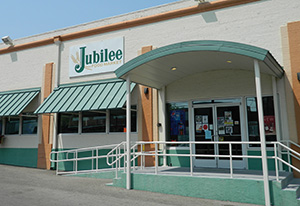
Mission Waco tried for four years to purchase a convenience store building that once housed a grocery store. But the owners refused to sell at a reasonable price.
Then a storm hit the neighborhood. High winds ripped away part of the roof of the old building, flooding its interior. The owners contacted Mission Waco, and the nonprofit bought the building.
At a neighborhood meeting, more than 60 community residents offered their ideas about how the building should be used. The overwhelming majority affirmed the idea of a grocery store that offered healthy and affordable food.
Sign up for our weekly edition and get all our headlines in your inbox on Thursdays
With the help of Christian volunteers who offered their expertise in construction, grocery store operation and management, Mission Waco put together a plan for renovating the building and operating the nonprofit business.
‘Investing in the community’
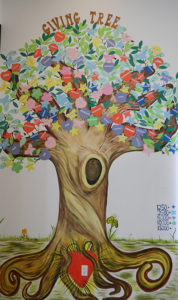
To raise much of the needed $925,000 to get the market off the ground, Mission Waco sold “shares” to churches, individuals and businesses.
“Instead of seeing it as a gift, we wanted them to see it as investing in the community,” Dorrell explained.
Jubilee Food Market opened its doors in November 2016. From its beginning, Mission Waco determined the nonprofit store would not sell liquor, tobacco or lottery tickets, and it would carry an ample supply of fresh fruit and vegetables. Considering grocery stores typically operate on a slim margin, organizers recognized making the market self-sustaining would be challenging.
“The average neighborhood person spends $8.25 each time they come here,” Dorrell said, noting the market could not stay afloat if it depended only on the business of residents within walking distance.
“So, we invited church folks from around the city to come here—not every time they need groceries, but on a regular basis,” he said. Some churches, such as Highland Baptist in Waco, regularly designate a particular week each month as the time when they encourage members to shop at Jubilee.
Continued conversations with people in the neighborhood also led Jubilee Food Market to expand its ethnic food offerings—including specialty meats, such as oxtails at the request of African American families and cabrito (goat) at the request of Hispanic customers.
‘It begins with listening to the neighborhood’
Jubilee Market also hosts an annual health and fitness fair in conjunction with more than 80 local sponsors—hospitals, businesses, churches and agencies.
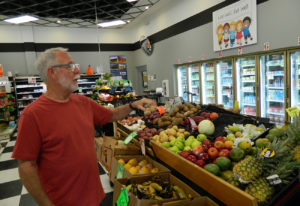
“If we want to see long-term improvement in the community, there has to be a health component,” he said, noting the prevalence of diabetes, hypertension and other ailments in low-income areas. “We want to create a neighborhood where people are eating better, exercising and taking care of themselves.”
Dorrell—who stepped away from his role as executive director of Mission Waco two years ago but continues to serve as president emeritus—already has visited with at least 15 groups from around Texas, as well as visitors from Michigan and California—who want to start nonprofit groceries in food deserts.
“I have a passion for replication,” he said.
Dorrell emphasizes to visitors the principles of Christian community development, which focuses on empowerment and leadership development within the community.
“It begins with listening to the neighborhood,” he stressed.
Making an impact in South Dallas
Chris Simmons began serving the South Dallas community and listening to its people in 1988. A year later, Cornerstone Baptist Church called him as pastor.
When he arrived, people described the area west of Fair Park as a “war zone” of gang violence, drive-by shootings, drug-dealing, homelessness and entrenched poverty.
The unhoused still frequent the area, and the average annual household income in the neighborhood remains at less than $16,000.
However, due in large part to the community development initiatives Cornerstone launched under Simmons’ leadership, the crime rate decreased dramatically.
About four years ago, Cornerstone began focusing on a small shopping center on South Boulevard that served as a center of gang activity.
“We went to the owners to see if they would sell to us,” Simmons recalled. The owners said the church could buy the property, but it would cost $200,000.
“For an inner-city church like ours, $200,000 might as well be $2 million,” Simmons lamented.
Working with multiple partners
However, he approached other churches in Dallas Baptist Association, presenting a vision for repurposing the property to make it a positive presence in the community. Valley Ranch Baptist Church in Coppell, Park Cities Baptist Church in Dallas and Lake Pointe Church, a multi-site congregation based in Rockwall, contributed the bulk of the needed funds within two weeks. Together with additional donations from other churches, Cornerstone was able to purchase the property.
Meanwhile, The Real Estate Council Foundation designated the neighborhood surrounding Cornerstone Baptist Church as a focus for revitalization. In partnership with Cornerstone, CitySquare, St. Philip’s School and Community Center, and others, TREC launched the Dallas Catalyst Project and began securing grant support from various sectors to revitalize the area.
“We listened to residents to see what they needed. The first thing they mentioned was a laundromat,” Simmons said.
‘An environment for gospel conversations’
So, TREC’s Young Guns auxiliary for up-and-coming real estate professionals worked with Cornerstone to help open the Cornerstone Community Laundromat in part of the building Cornerstone had secured.
Even during the COVID-19 lockdown, the laundromat continued to operate Monday through Saturday as an essential service to the community, offering access to six washers and six dryers on a “pay-as-you-can” basis.
By providing computer access and WiFi, the laundromat also served neighborhood residents even when local libraries were closed due to the pandemic. It also offers space for several Bible studies to meet each week.
“It’s a place where people gather for an hour and a half to two hours every week, so it creates good opportunities to build relationships,” Simmons said. “It creates an environment for a lot of gospel conversations.”
Once the laundromat was operating, TREC began working with Cornerstone to work on the second need area residents identified—a place to buy affordable groceries within walking distance of their homes.
Developing a small nonprofit grocery store
TREC’s Associate Leadership Council worked with Cornerstone to develop a small nonprofit grocery store—the Southpoint Community Market—as its 2020 class project.
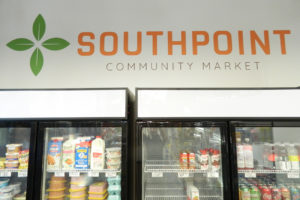
The 800-square-foot market began operating three days a week—Thursday through Saturday—beginning in mid-June.
Because the volume is so low, rather than purchase food from large-scale grocery suppliers, volunteers carefully watch for sales and purchase items for resale from commercial groceries.
“We sell small quantities to keep prices affordable. We’ll repackage eggs and sell a half dozen at a time. We’ll sell a whole watermelon, but we’ll also sell it by the slice,” Simmons explained.
When Cornerstone discovered another building, where it opened a community bike repair shop, had been infested by bees, the church hired someone to move the hive to another location and began selling locally produced honey at the market.
Southpoint Community Market also rents shelf space to small cottage industries, such as individuals who sell homemade seasoning, pickles and pies.
A ministry of the church
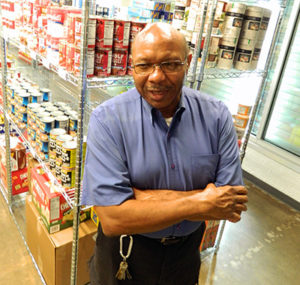
“It’s a family-friendly place where parents can come with their children to buy some groceries without having to walk past a big display of beer, wine and alcohol,” Simmons said.
While the market depends heavily on volunteer staff now, the church is committed to creating jobs for neighborhood residents—hiring within its ZIP Code and paying workers at least $15 an hour.
In time, Cornerstone plans to open a commercial kitchen in adjoining space where the church can teach culinary education and nutrition classes, and budding entrepreneurs can start small businesses.
Simmons also wants to see a small coffee bar open inside Southpoint Community Market, to create a welcoming environment where people can sit and visit.
“We want to develop relationships and provide a place for gospel-centered conversations,” he said.
“Above all, this is a ministry of our church. We see it as another way for the church to reach out to the community.”







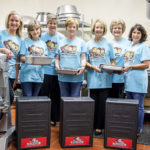








We seek to connect God’s story and God’s people around the world. To learn more about God’s story, click here.
Send comments and feedback to Eric Black, our editor. For comments to be published, please specify “letter to the editor.” Maximum length for publication is 300 words.